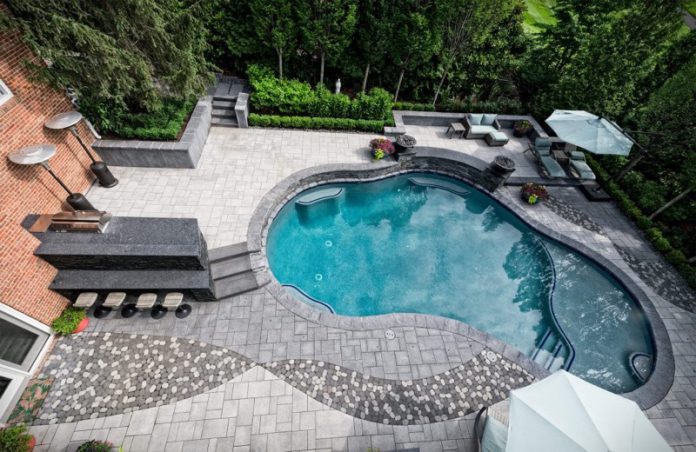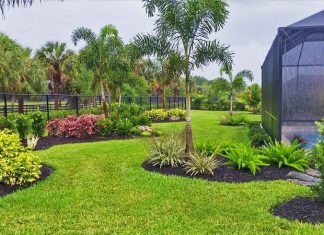Pool Installation in Winter, Spring, or Fall: Which Season is the Best?
You can choose to have a swimming pool installed at any time of the year. However, the time you pick can have numerous effects, especially in terms of the installation costs. In this article, we’ll take you through the pros and cons of having your pool installed in winter, spring, and fall. By the end of the article, we hope you’ll have enough information to make a sound decision as to when to get the installation done based on your preferences.
Spring pool installations
Most homeowners prefer pool installations across the months of spring. This is due to the fact that spring signals the imminent arrival of summer, and it’s during the summer months that a swimming pool is most enjoyable. Some of the advantages of pool installations in spring include:
- Latest equipment: The majority of new pool technology and equipment, such as automated systems, cleaners, pool shells, and pumps, is launched during the months of spring. So, if you’re someone who likes to have the newest and the most advanced products, a spring pool installation would make sense for you.
- Discounts on old equipment: Spring also makes for a good time for budget buyers, as it’s during this season that suppliers tend to be desperate to clear their shelves of older stock. So, if you like bargain deals, spring is a great time to purchase slightly older equipment at discounted prices.
- Ideal for landscaping: The spring months are perfect for landscaping, which makes for good news if you want your pool space to look all decked up prior to your first swim. If you get the landscaping done in spring, you can expect your pool area to look gorgeous by the time summer comes around.
However, spring newcastle swimming pool installations also have a few negatives, such as:
- More demand for contractors means higher installation costs: As we mentioned right at the beginning of this section – springtime is when most homeowners prefer their pools to be installed. Due to this, the demand for contractors skyrockets during this season. And you know how the laws of economics work, right? The greater the demand, the higher the price. Sure, you might come across a few builders that are offering low prices, but it’s best to steer clear of these builders and pay a higher price to a reputed builder.
- Spring downpours can make things complicated: Another potential downside of spring pool installations is the possibility of heavy rain, which can make installations more complicated and time-consuming. This may add to the overall installation costs as well.
Fall pool installations
In recent years, fall pool installations have gathered momentum. While they aren’t as popular as spring pool installations yet, more and more homeowners are considering them due to some unique benefits that the season presents. One of the major considerations for fall pool installations is the length of the installation project. Quite simply, you don’t want the weather to worsen before the project ends. So, planning accordingly is imperative. You should know that:
- It takes 3 – 6 weeks to install fibreglass pools
- It takes 4 – 8 weeks to build vinyl liner pools
- It takes 3 – 6 months to build concrete and gunite pools
Now that’s out of the way, let’s look at the benefits of fall pool installations:
- Off-season for builders translates to lower installation costs: Fall is off-season for builders and contractors, which means that they’re typically available at lower prices compared to the months of spring. However, this trend is set to change in the coming years with pool installations becoming more and more popular with each passing year. So, if you want to take advantage of this, you should get your pool installed this coming fall.
- Good weather for pool installation: During the fall months, the weather is cool, but not cold enough to freeze the ground. Typically, there’s no rain as well. The combination of these elements ensures that pool installations can go as per schedule with no chance of projects being extended due to bad weather. Even if your installation is delayed due to some reason, it won’t be a problem if you don’t plan on using your pool during the fall and winter months.
There’s only one potential disadvantage of fall pool installations – the possibility of the ground being frozen in colder regions. Installation costs can shoot up in such situations as installation projects typically become more complex and time-consuming.
Winter pool installations
Most homeowners steer clear of winter pool installations and for good reason. However, winter is a great time to save money on hiring builders and contractors as they’re available at their cheapest rates during the winter months. Some of the other benefits of winter pool installations include:
- Time to repair the yard: Pool installations can be messy and cause damage to your yard. However, if you don’t plan on using the pool in winter, you can take the time to get the yard repaired before spring.
- Finish the installation project comfortably: There’s no rush to finish installing the pool during winter as you probably won’t be using the pool before spring. So, builders and installers can take greater care and pay more attention to detail to ensure a perfect installation.
Again, the major disadvantage of a winter pool installation has to do with the weather, similar to a fall installation. Unexpected delays may happen, which may lead to an increase in installation costs. However, this is only a problem if you’re desperate to use your pool in winter. If not, you can look past this disadvantage.
Which season is the best for pool installation?
So, now that you know all the pros and cons of pool installations in spring, fall, and winter, it’s time to determine the best season for pool installation. Ultimately, the choice boils down to what you prefer. For instance, if the latest pool equipment is your priority and you don’t really care about the expenses, the spring season would be the best for you. However, if you want savings and discounts, you should get your pool installed in either the fall or winter season.















